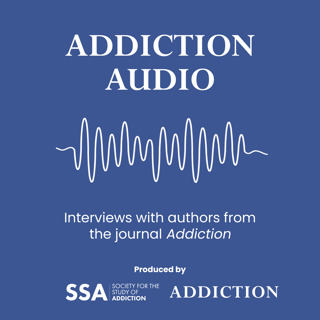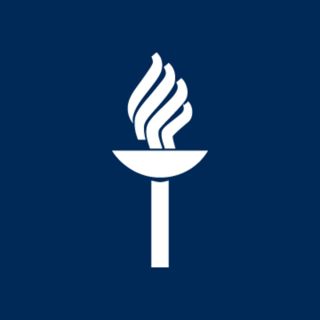
Benzodiazepines and treatment with Adam Bakker, Michael Liebrenz and Alexander Smith
In this episode Ben Scher talks to Dr Adam Bakker, Professor Michael Liebrenz and Dr Alexander Smith about their commentary in response to a previous paper by Domzaridou and colleages (2023). They discuss the complexities of providing treatment for people who use, and are prescribed, opiates, opiate agonist medications and benzodiazepines. They talk about using a combination of medical and non-medical treatments when working with people who use benzodiazepines as well as the research needed to bring clarity to this pressing clinical issue."This population is notoriously difficult to engage, but we should go the extra mile to retain them in treatment because of this high mortality."Original Article: Comment on Domzaridou et al.: Recognising the complexities of co-prescriptions and lifestyle factors in opioid agonist treatment by Adam Bakker and colleagues. Published in Addiction (2024).The opinions expressed in this podcast reflect the views of the host and interviewees and do not necessarily represent the opinions or official positions of the SSA or Addiction journal.The SSA does not endorse or guarantee the accuracy of the information in external sources or links and accepts no responsibility or liability for any consequences arising from the use of such information. Hosted on Acast. See acast.com/privacy for more information.
25 Huhti 202423min

Contingency management with Gabriela Khazanov, James, McKay and Richard Rawson
In this episode, Ben Scher talks to Dr Gabriela Khazanov, Professor James McKay and Professor Richard Rawson. They discuss what contingency management is and how effective it can be in treatment settings. They also talk about how contingency management can be used for stimulant use disorders; an area where there are relatively few evidence-based treatments.the team goes on to discuss implementation of contingency management in the US and the barriers faced by practitioners such as predominant ethical concerns. They also cover how attitudes towards contingency management have changed over the past decade. The paper that was published in Addiction looked at ways to improve dissemination and implementation of contingency management.Often patients are not able to re-engage in contingency management if they drop out or they’re not allowed to repeat contingency management. And all of that was done to prevent fraud and waste and those kinds of concerns. But we don’t limit other kinds of treatment. We don’t limit behavioural therapy, typically we don’t limit the ability to take medications that could potentially be effective. Original article: Should contingency management protocols and dissemination practices be modified to accommodate rising stimulant use and harm reduction frameworks? by Gabriele Khazanov and colleagues. Published in Addiction (2024). The opinions expressed in this podcast reflect the views of the host and interviewees and do not necessarily represent the opinions or official positions of the SSA or Addiction journal.The SSA does not endorse or guarantee the accuracy of the information in external sources or links and accepts no responsibility or liability for any consequences arising from the use of such information. Hosted on Acast. See acast.com/privacy for more information.
17 Huhti 202427min

Xylazine, heroin and drug markets with Caroline Copeland
In this episode Ben Scher talks to Dr Caroline Copeland about her work analysing drug death data to identify drug use trends, harms and to inform policy. Caroline talks about how xylazine first entered the US drug market but has been increasingly identified in Europe and the UK, even being identified in vapes sold as containing tetrahydrocannabinol (THC). Caroline covers the harms from xylazine and the implications for public health practitioners before relating the UK issues to wider global drug markets."The other really nasty thing that xylazine does is that it can cause blood vessels to contract, and our tissues need blood.....to survive, and if we're closing off those blood vessels, that tissue is going to die and it's going to turn into sores on your skin. And if they get infected it can lead to amputation"Dr Caroline Copeland is a senior lecturer in pharmacology and toxicology at King’s College London and the director of the National Programme on Substance Use Mortality.Original article: Broad evidence of xylazine in the UK illicit drug market beyond heroin supplies, triangulating from toxicology, drug testing and law enforcement by Caroline Copeland and colleagues. Published in Addiction (2024)The opinions expressed in this podcast reflect the views of the host and interviewees and do not necessarily represent the opinions or official positions of the SSA or Addiction journal.The SSA does not endorse or guarantee the accuracy of the information in external sources or links and accepts no responsibility or liability for any consequences arising from the use of such information. Hosted on Acast. See acast.com/privacy for more information.
9 Huhti 202420min

Synthetic opioid production in Europe with Paul Griffiths
In this episode, Dr Elle Wadsworth talks to Paul Griffiths about synthetic drug production in Europe including the differences between lab-made substances and diverted medical drugs. They discuss organised crime and its impact on cocaine production, drug availability and the potential for drug contamination. They also cover fentanyl and the potential for a heroin drought resulting from changes in opium production in Afghanistan.Paul talks about the complexities of European drug markets explaining how they commonly respond to changes in both supply and demand. Elle and Paul then discuss how researchers can monitor drug trends through wastewater analysis and other methods.“These are often very small labs, but because of the potency of these drugs, it means very small production runs can have quite a big impact on local drug consumption patterns and mortality and morbidity. So we saw a few years ago, ten or fifteen years, one lab in central Europe we had a very brief outbreak of deaths in about three countries all related to a very very small, a kitchen lab it was actually in someone’s kitchen but it had an impact.”Paul Griffiths is the scientific director for the EMCDDA – the European Monitoring Centre for Drugs and Drug AddictionOriginal article: Opioid problems are changing in Europe with worrying signals that synthetic opioids may play a more significant role in the future by Paul Griffiths and colleagues. Published in Addiction (2024)The opinions expressed in this post reflect the views of the host and interviewees and do not necessarily represent the opinions or official positions of the SSA or Addiction journal.The SSA does not endorse or guarantee the accuracy of the information in external sources or links and accepts no responsibility or liability for any consequences arising from the use of such information. Hosted on Acast. See acast.com/privacy for more information.
4 Huhti 202433min

Alcohol-free drinks in the US with Molly Bowdring
In this episode Dr Merve Mollaahmetoglu talks to Dr Molly Bowdring about her recent article on the impact of alcohol-free drinks such as zero-percent beers, wines and mocktails. Molly talks about using survey data to explore different patterns, such as using non-alcoholic drinks to slow alcohol consumption, to alternate days or as part of someones recovery. Merve and Molly discuss the occasional differences between how people think non-alcoholic drinks change their alcohol consumption and what actually happens to their overall use.If you're somebody who already uses them, be reflective about how is this impacting your desire for alcohol and your consumption in that same night or across the week and just be curious about the relation between your non-alcoholic beverage use and your alcohol use.Original article: Non-alcoholic beverage consumption among US adults who consume alcohol by Molly Bowdring and colleagues. Published in Addiction (2024)The opinions expressed in this post reflect the views of the host and interviewees and do not necessarily represent the opinions or official positions of the SSA or Addiction journal.The SSA does not endorse or guarantee the accuracy of the information in external sources or links and accepts no responsibility or liability for any consequences arising from the use of such information. Hosted on Acast. See acast.com/privacy for more information.
26 Helmi 202417min

Gambling advertising with Philip Newall
In this episode, Rob Calder talks to Dr Philip Newall about how the gambling industry frames the evidence on gambling advertising. Philip talks about researching the kinds of bets that are commonly advertised, explaining how they are often projected to be 'good' bets when the chances of winning are very small. "It's really got the two sides of the coin there in that it appears really attractive, but actually it's the bookmaker that's really winning the most. And that's the underlying psychology in how they're able to offer things that seem good but are actually really profitable for them."Philip also talks about how difficult it can be corralling 50 people into co-writing a short letter.Dr Philip Newall is a lecturer in psychological science at the University of Bristol, a member of the Advisory Board for Safer Gambling (although speaking on this podcast in an independent capacity) and the joint winner of the Society for the Study of Addiction’s Impact Prize in 2023.Original article: No evidence of harm’ implies no evidence of safety: Framing the lack of causal evidence in gambling advertising research by Philip Newall and colleagues. Published in Addiction (2023)The opinions expressed in this post reflect the views of the host and interviewees and do not necessarily represent the opinions or official positions of the SSA or Addiction journal.The SSA does not endorse or guarantee the accuracy of the information in external sources or links and accepts no responsibility or liability for any consequences arising from the use of such information. Hosted on Acast. See acast.com/privacy for more information.
8 Helmi 202432min

Addiction and definitions with Robert West
In this episode Zoe Swithenbank talks to Professor Robert West about his work on ontologies within addictions. Robert begins by summarising the definitions and constructions that relate to addiction, as well as their meanings and the implications for treatment. He also explains how different definitions can frustrate progress in addiction-related research.Zoe and Robert then discuss how the addictions sector can learn from other sciences - particularly the biological sciences - about how to use those definitions, labels and ontologies to aid research. Robert covers the work on AddictO Vocab (https://addictovocab.org/) and explains the goal to develop a well-defined construct for anything that anyone might want to refer to in a research paper."Ontologies are very specific ways of representing the world that have been developed primarily for use in computer science and data science.... They are very formal systems for representing things called entities. Entities are literally anything you can imagine whether it's real or not real. So 'unicorn' for example, can be an entity for example, as can 'addiction' - as can 'horse'."Original article: Achieving consensus, coherence, clarity and consistency when talking about addiction by Robert West and colleagues. Published in Addiction (2023)The opinions expressed in this post reflect the views of the host and interviewees and do not necessarily represent the opinions or official positions of the SSA or Addiction journal.The SSA does not endorse or guarantee the accuracy of the information in external sources or links and accepts no responsibility or liability for any consequences arising from the use of such information. Hosted on Acast. See acast.com/privacy for more information.
19 Joulu 202318min

Nitrous oxide, addiction and substance use disorder with Sammie Back and Emese Kroon
In this episode Dr Elle Wadsworth talks to Sammie Back and Emese Kroon about nitrous oxide. The discussion happened on 8 November 2023, on the day that possession of nitrous oxide became a Class C substance in the UK. The group discuss the existing evidence for harms, addiction and other disorders, exploring this relatively under-researched area. They cover the lack of research and how researchers can begin to understand what's happening when a drug's popularity rapidly increases. They also talk about how people use nitrous oxide and in which circumstances use might be more likely. Finally, they relate nitrous oxide against criteria for substance use disorders taken from DSM-5 and discuss the implications from their findings. "We just need more data.... For a drug used this regularly, it's honestly quite astounding that we have so little scientific evidence to inform the public also healthcare professionals and policy makers." Emese KroonOriginal article: Does nitrous oxide addiction exist? An evaluation of the evidence for the presence and prevalence of substance use disorder symptoms in recreational nitrous oxide users by Sammie Back and colleagues. Published in Addiction (2023) The opinions expressed in this podcast reflect the views of the host and presenters and do not necessarily represent the opinions or official positions of the SSA or Addiction journal.The SSA does not endorse or guarantee the accuracy of the information in external sources or links and accepts no responsibility or liability for any consequences arising from the use of such information. Hosted on Acast. See acast.com/privacy for more information.
12 Joulu 202324min




















